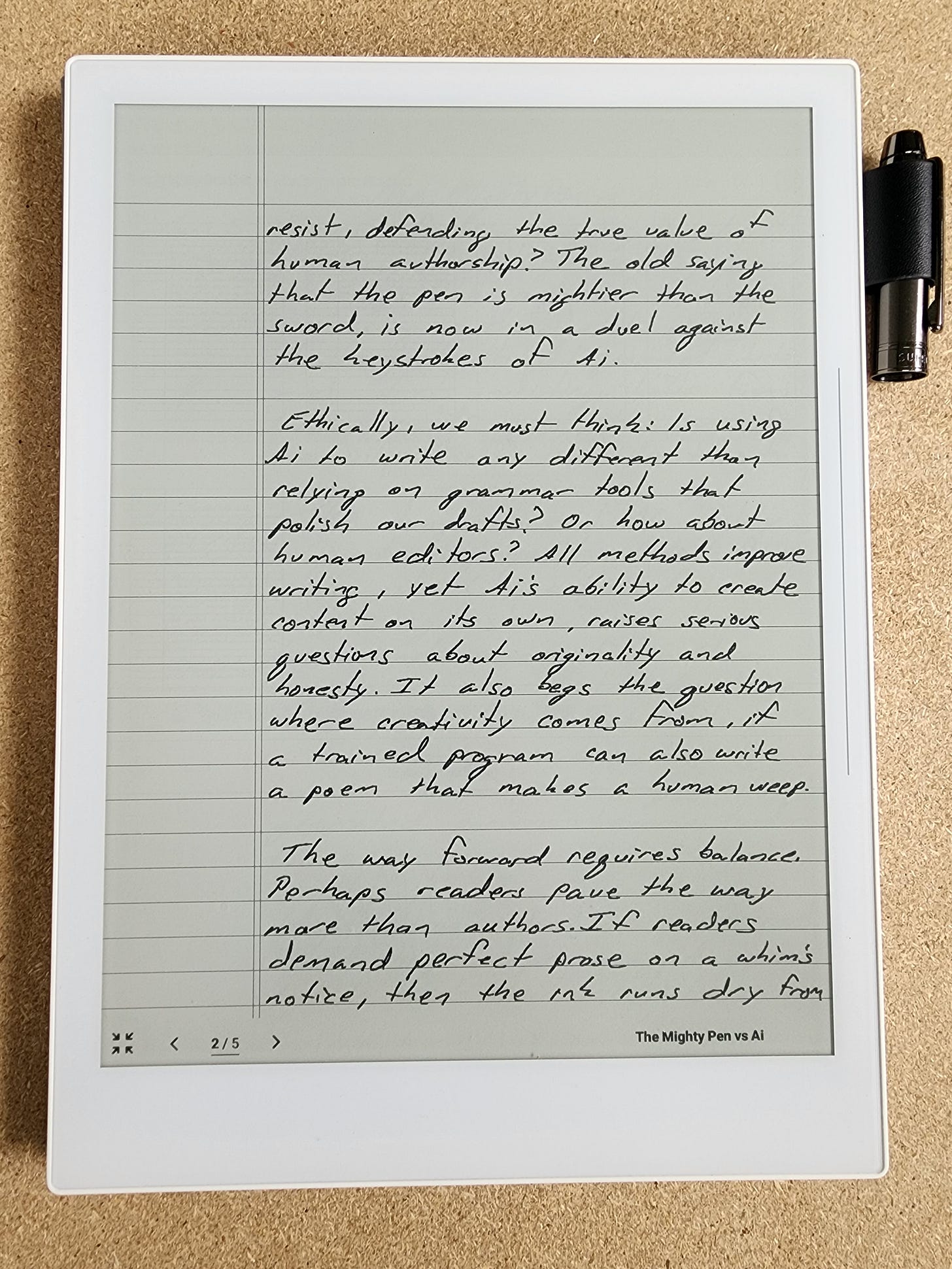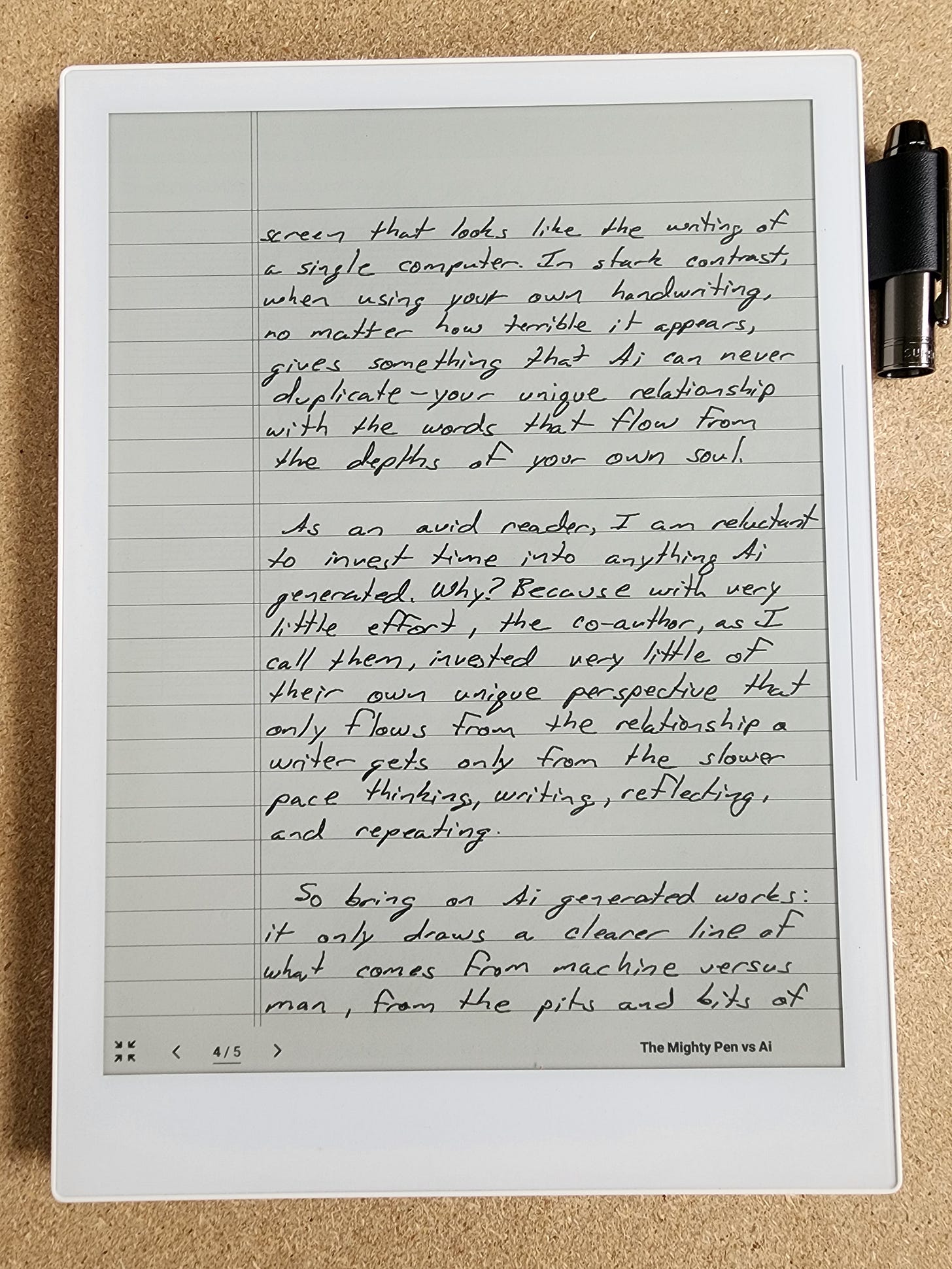The Mighty Pen vs. Ai
Is the pen truly mightier than the sword as it appears to be in a battle against the keystrokes of Ai?
In our fast-changing world, artificial intelligence (AI) is now mastering the art of writing, presenting authors with new challenges. With AI-generated articles and almost indistinguishable from human-made prose, the core of creativity itself is under threat.
The danger is real. AI's ability to create high-quality content forces us to ask: Can authors truly compete against machines that learn and improve faster than any human ever could? As these tools polish imperfect writing with amazing accuracy, the line between human and program-generated content becomes harder to see.
Authors now stand at a crossroads. Should they adapt, using AI as a tool to boost their creativity, or resist, defending the true value of human authorship? The old saying that the pen is mightier than the sword is now in a duel against the keystrokes of AI.
Ethically, we must think: Is using AI to write any different than relying on grammar tools that polish our drafts? Or how about human editors? All methods improve writing, yet AI's ability to create content on its own raises serious questions about originality and honesty. It also begs the question of where creativity comes from. If a trained program can also write a poem that makes a human weep.
The way forward requires balance. Perhaps readers pave the way more than authors. If readers demand perfect prose on a whim's notice, then the ink runs dry from the pen.
However, if readers demand authentic writing and can accept some occasional errors at a slower pace, then AI short circuits. However, perhaps many authors will secretly use AI to edit, if not write all of their words. This can sometimes leave readers unaware, especially if one can also instruct AI to write with occasional errors in the style of a freshman English student, for example.
I, for one, am returning to the basics. As the digital world plows themselves over like a herd of sheep trampling over a cliff like an unseen force, I went back to the pen literally. There's something more intimate, more authentic about pressing a pen to paper, or in my case specifically, pen to Supernote. When typing out any narrative you are staring at a font on a glowing screen that looks like the writing of a single computer.
In stark contrast when using your own handwriting, no matter how terrible it appears, gives something that AI can never duplicate—your unique relationship with the words that flow from the depths of your own soul.
As an avid reader, I am reluctant to invest time into anything AI-generated. Why? Because with very little effort the co-author, as I call them, invested very little of their own unique perspective that only flows from the relationship a writer gets from the slower pace thinking, writing, reflecting, and repeating.
So bring on AI-generated words: it only draws a clearer line of what comes from machine versus man, from the pits and bits of a computer versus what rolls off the end of a pen, AI robs us of the human experience, and it will never replicate that.
There's an unspoken beauty in human misstakes—see what I did ther—that reveals itself in a world filled with clutter.
My pen is a candle in the dark in search of a torch to light. The age of yesteryear is the true beauty of today. So as I swing my mighty sword between the blurry lines of artificial intelligence, let each stroke be that of a hidden beauty. With each press on the paper, each connection from letter to word, let those words connect with another human soul. Because the magic of human connection can only happen through genuine human experience.
Joseph Allen Paine







